Filter by

Cultivating science, harvesting power :science and industrial agriculture in …
Christopher R. Henke reveals how agricultural scientists and growers in California have cooperated - and struggled - in shaping the state's multi-billion-dollar farm industry.OCLC-licensed vendor bibliographic record.
- Edition
- -
- ISBN/ISSN
- 9780262275286
- Collation
- 1 online resource (xi, 226 pages) :illustrations, map.
- Series Title
- -
- Call Number
- -

Feeding the world :a challenge for the twenty-first century
A realistic yet encouraging look at how society can change in ways that will allow us to feed an expanding global population.This book addresses the question of how we can best feed the ten billion or so people who will likely inhabit the Earth by the middle of the twenty-first century. He asks whether human ingenuity can produce enough food to support healthy and vigorous lives for all these p…
- Edition
- First MIT paperback edition.
- ISBN/ISSN
- 9780262283861
- Collation
- 1 online resource
- Series Title
- -
- Call Number
- -
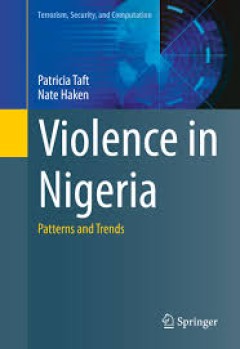
Violence in Nigeria Patterns and Trends
This book takes a quantitative look at ICT-generated event data to highlight current trends and issues in Nigeria at the local, state and national levels. Without emphasizing a specific policy or agenda, it provides context and perspective on the relative spatial-temporal distribution of conflict factors in Nigeria. The analysis of violence at state and local levels reveals a fractal pattern of…
- Edition
- -
- ISBN/ISSN
- 978-3-319-14935-6
- Collation
- -
- Series Title
- -
- Call Number
- -
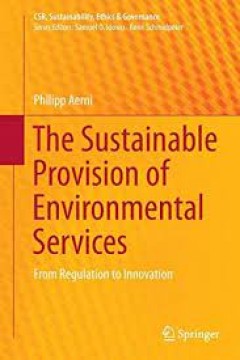
The Sustainable Provision of Environmental Services from Regulation to Inno…
This book addresses the ability of market-based instruments to improve the sustainable provision of environmental services. The author combines field research and insights from the multi-stakeholder dialogue at the FAO to analyze the gap between the predictions provided by theory and the corresponding outcomes in practice. In particular, the author challenges the theory behind Payments for Envi…
- Edition
- -
- ISBN/ISSN
- 978-3-319-19345-8
- Collation
- -
- Series Title
- -
- Call Number
- -
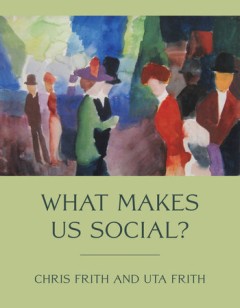
What Makes Us Social?
A deep dive into the social mind-brain, examining the processes we share with other social animals and illuminating those that are uniquely human. What Makes Us Social? is a scholarly but accessible exploration of the underlying processes that make humans the most social species on the planet. Chris and Uta Frith, pioneers in the field of cognitive neuroscience, review the many forms of soci…
- Edition
- Ed. 1
- ISBN/ISSN
- 9780262375498
- Collation
- -
- Series Title
- -
- Call Number
- 300 FRI w
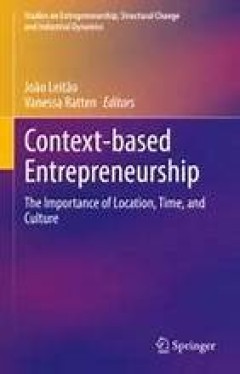
Context-based Entrepreneurship
Context plays an important role in entrepreneurship and this is increasingly being acknowledged both in research, practice, and policy considerations. Where, why, and how entrepreneurship occurs can be considered when studying the effects of context. This book focuses on the role of context in entrepreneurship by analyzing different factors, including locational, time-specific, and cultural var…
- Edition
- 1
- ISBN/ISSN
- 978-3-031-05307-8
- Collation
- Manajemen
- Series Title
- -
- Call Number
- 658
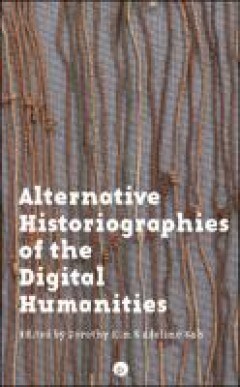
Alternative Historiographies of the Digital Humanities
"In Silencing the Past: Power and the Production of History, Michel-Rolph Trouillot writes that by examining the process of history we can “discover the differential exercise of power that makes some narratives possible and silences others.” Alternative Historiographies of the Digital Humanities examines the process of history in the narrative of the digital humanities and deconstructs its …
- Edition
- Ed. 1
- ISBN/ISSN
- 9781953035578, 9781953035585
- Collation
- 512
- Series Title
- -
- Call Number
- 381 ALT a
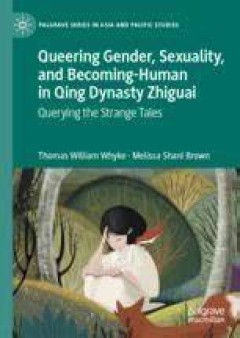
Queering Gender, Sexuality, and Becoming-Human in Qing Dynasty Zhiguai
This book offers queer readings of Chinese Qing Dynasty zhiguai, ‘strange tales’, a genre featuring supernatural characters and events. In a unique approach interweaving Chinese philosophies alongside critical theories, this book explores tales which speak to contemporary debates around identity and power. Depictions of porous boundaries between humans and animals, transformations between g…
- Edition
- 1
- ISBN/ISSN
- 978-981-99-4258-9
- Collation
- Gender
- Series Title
- -
- Call Number
- 305.3
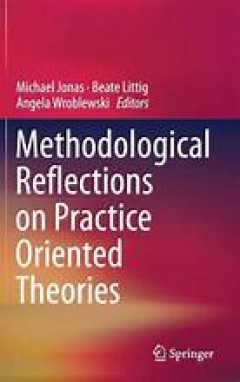
Methodological Reflections on Practice Oriented Theories
This volume presents a comprehensive overview of methodological issues and empirical methods of practice-oriented research. It examines questions regarding the scope and boundaries of practice-oriented approaches and practice theory. It discusses the potential advantages and disadvantages of the diversity resulting from the use of these approaches, as well as method and methodology-related issu…
- Edition
- 1
- ISBN/ISSN
- 978-3-319-52897-7
- Collation
- Sosial Ekonomi
- Series Title
- -
- Call Number
- 261
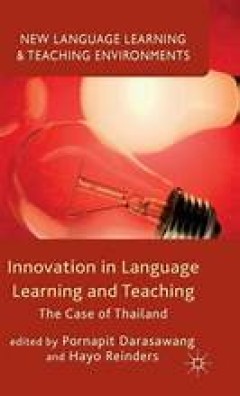
Biopolitics and Utopia
This interdisciplinary reader offers a fascinating exploration of the intersection of biopolitics and utopia by employing a range of theoretical approaches. Each essay provides a unique application of the two concepts to topics spanning the social sciences and humanities.
- Edition
- 1
- ISBN/ISSN
- 978-1-137-51475-2
- Collation
- politik
- Series Title
- -
- Call Number
- 324
 Computer Science, Information & General Works
Computer Science, Information & General Works  Philosophy & Psychology
Philosophy & Psychology  Religion
Religion  Social Sciences
Social Sciences  Language
Language  Pure Science
Pure Science  Applied Sciences
Applied Sciences  Art & Recreation
Art & Recreation  Literature
Literature  History & Geography
History & Geography